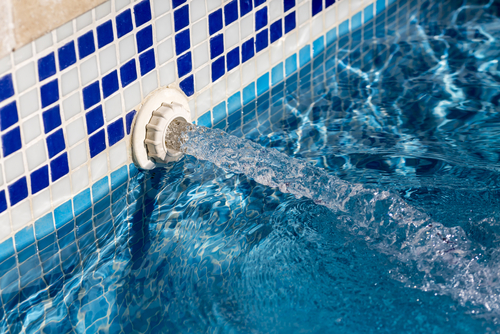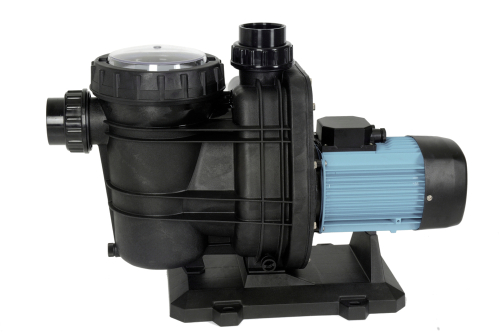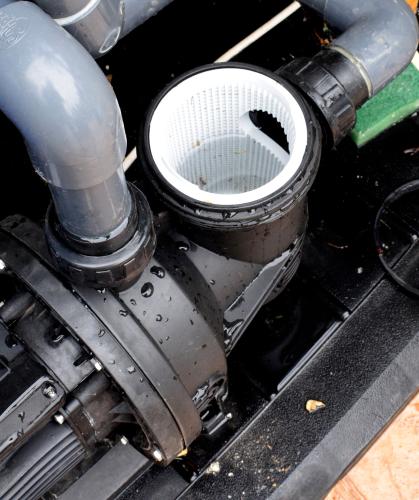
Your pool pump is essential when it comes to keeping your swimming pool clean and functional. But the pool pump and the motor inside can break down from time to time. Since most of the mechanical equipment behind the pool is kept hidden, you might not be sure what to do if you hear a strange sound or your motor stops working altogether. But it’s important to recognize the difference between a broken pool pump and a broken motor. Replacing the entire pump can cost twice or even four times as much as replacing the motor. Some pool repairmen might try to talk you into replacing the entire pump, but you’ll actually be better off with a simple pool pump motor replacement. Learn how to recognize the difference between the two, so you can make the right decision for your pool.
Making Sure It’s the Motor
If you’re thinking about replacing a part of your pool pump, make sure the entire pump is still in good condition. Open up the housing where your pump is located and make sure everything looks normal. You shouldn’t see any dry or cracked housing around the edges. There should be no rust, discoloration or leaks. This is a great way to rule out replacing the entire pump, so take your time inspecting every aspect of the device. Check cables and lines to make sure they’re not frayed at the end. The bolts should be secure and free of debris.
If you see something wrong with your pool pump such as cracked housing, leaking fluid or rusted bolts, you’ll probably have to replace the entire pump. If you’ve been having problems with your pool, getting a new pump will give you some peace of mind that everything is working as it should. You can also get a new warranty for your pump in case anything goes wrong going forward.
Strange Sounds Coming from the Motor
If everything looks like it’s in good shape with the overall pump, it’s time to move onto the motor. Motors are fairly straightforward. They’re either running or they’re not. The best way to make sure your motor is in good shape is to use your ears. Keep the pump housing open, so you can listen closely to what’s happening with the motor. You might want to wait until some of the other sounds in your neighborhood settle down for the evening. When it’s quiet, listen for the following sounds:
Grinding
If you hear a loud grinding sound, it’s usually a sign that the bearings are getting worn down. The bearings are the part of the machine that keep the motor running. Your pump could be leaking water, or the bearings might need to be replaced instead of the entire motor.
Screeching
Screeching is also a sign that your motor bearings need to be replaced. These loud, often painful sounds could also be a sign of rust or oxidation, making it more difficult for the bearings to do their job.

Humming
When your motor is accompanied by a strange humming sound, it usually means the capacitor has failed. This component provides a charge so the motor will run consistently. The most likely reason your capacitor has failed is a surcharge of electricity that causes the capacitor to overheat. You can replace the capacitor instead of replacing the entire motor.
Pops and Clicks
If you hear a pop and a click when turning on the motor, it’s a sign of electrical failure either inside your pump or inside your home. You may need to do some electrical detective work to find out what’s causing the lack of power.
No Sound at All
If your motor is completely silent, it probably means the motor is dead and it needs to be replaced.
Age of Motor
If it’s been 10 to 15 years since the motor was initially installed, you should think about getting the motor replaced. It might work for another few months, but the end is near.

These are some easy ways to find out if your pool pump motor needs to be replaced. If you’re not sure what’s wrong with your pool, you should always hire a professional to help you get to the bottom of the situation. Pool pumps can be complex pieces of machinery, so it might help to enlist some more expertise. Whatever the problem, you should be able to fix it for just a few hundred dollars or less.
 Hello Guest,
Hello Guest,  158 item(s)
158 item(s)
